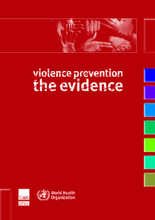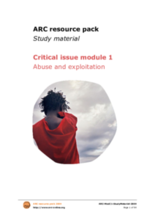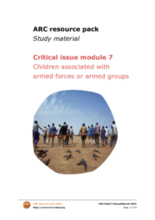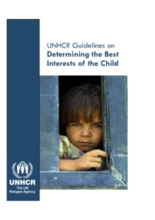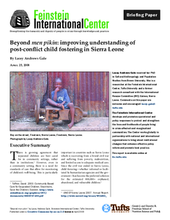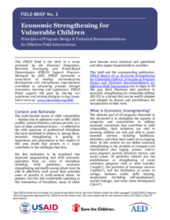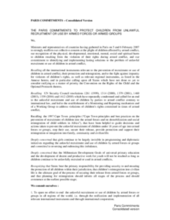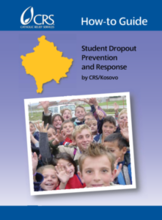Displaying 441 - 450 of 532
This report brings together an eight-part series of briefings on the evidence for interventions to prevent interpersonal and self-directed violence. By spotlighting evidence for the effectiveness of interventions, the series provides clear directions for how violence prevention funders, policy makers and programme implementers can boost the impact of their violence prevention efforts.
This module aims to provide guidance on essential aspects of child abuse and exploitation, highlighting the main forms of abuse and presenting some possible action against it.
This module aims to support the development of skills and knowledge in relation to emergency aspects of working with children affected by armed conflict, and to provide information and links for those who require more detailed resources and guidance.
Provides a formal mechanism to determine the best interests of the child as a mechanism within a child protection system
Examines the challenges posed in monitoring and ensuring child protection in informal and formal fostering in post-conflict areas.
A brief illustration of ten economic strengthening tools that can be adapted to address child vulnerability due to HIV/AIDS, conflict, natural disaster, extreme poverty, or other contexts.
The Paris Commitments to protect children from unlawful recruitment or use by armed forces or armed groups. These principles revise and expand on the Cape Town Principles developed in 1997.
Introductory material for the Free Children From War conference held in February 2007 in Paris, France. Includes background, goals, and a short statistical summary detailing the achievements of care and reintegration programs since 1998. Lists the 1997 Cape Town Principles.
This Guide provides a number of practical strategies, tips and activities for working with stakeholders to prevent student dropout. Based on the work of CRS/Kosovo, this information is useful for other organizations and government bodies working on student dropout prevention and response within the region.
Evaluation of four child-focused DDR projects funded by the World Bank Multi-Country Trust Fund in the DRC. Includes detailed strategic analysis and recommendations.

